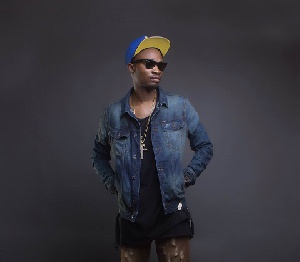A disabled person is one who is physically or mentally impaired and this condition has substantially affected or affects adversely the execution of his or her normal daily activities in the long-term. A disabled person is impaired and experiences a form or forms of disability. There is the inability and disallowance in the involvement and usage of opportunities in the society, (Northern Officer Group, 1999). There are limitations to a high extent that bars the individual from benefiting evenly from opportunities inherent in society and these barriers are environmental and social in nature (Northern Officer Group, 1999).
UN Convention on the Rights of Persons with Disabilities of which Ghana is a signatory firstly, states that "persons with disabilities include those who have long-term physical, mental, intellectual or sensory impairments which in interaction with various barriers may hinder their full and effective participation in society on an equal basis with others." Moreover, the term "include" should not be interpreted as excluding those who have short term or fluctuating conditions. The convention requires that parties ensured the promotion, protection and full enjoyment of human rights of people with disabilities and safe guarding that such persons enjoyed full equality under the law, (www.un.org,2017).
The Ghanaian 1992 Constitution states clearly in article 17 (1) that "all persons shall be equal before the law (2) a person shall not be discriminated against on the grounds of gender, race, colour, ethnic origin, religion, creed or social or economic status”. Also Article 12(2) of the Ghanaian Constitution states that "every person in Ghana , whatever his race ,place of origin, political opinion, colour, religion, creed , or gender shall be entitled to the fundamental human rights and freedom of the individual contained in Chapter (5) but subjected to the respect for the rights and freedoms of others and for the public interest”. Persons with disabilities by default are included to merit from this inclusion.
Paramount, article 29, sub-sections (1-8) specifically enshrines the rights of people with disabilities. The Persons With Disability Act 715, enacted in 2006 safeguards and entrenches the right of people with disability against exploitation and discrimination. Section 4 (1) states a person shall not discriminate against, exploit or subject a person with disability to abuse or degrading treatment. All these reflects the gravity at which the constitution abhors the maltreatment of people with disabilities.
The Ghanaian entertainment scene is on the rise with more visible increase in the segmentation of entertainers thus a rise in the level of professionalism in various aspects of entertainment. Popular culture has heightened the demand of entertainers such as comedians, musicians actors and writers and has brought these professionals a lot of relevance. There is a higher patronage for the local entertainment package holistically by both the masses and the elite of society.
A growing concern however, is the demeaning portrayal of people with disabilities in popular culture. From time immemorial society has been deducing humor from disable people right through to the Shakespearean era (Clarke,2003).This rather shameful ritual of using discriminatory, intimidating, disdainful disabled comedic material to entertain has been embraced unconsciously and perhaps purposely by all and sundry.
The mass media alone cannot be held responsible for this, it is an evil we have encouraged and endorsed as a people. In comedy circles, most highly rated comedians on many occasions have said such derogatory jokes about disabled people to get laughs from audience of our kind (Barnes 1991).
Humor has been deduced from people with speech impairments, people who stammer, people with epileptic seizures, people with down syndrome and people with disabilities, generally. This evil is done in movies, music videos and many other forms of entertainment. The inappropriate oral presentation and visual depiction of people with disabilities as entertainment content in the mainstream apart from it being illegal and exploitative, damages the self esteem and disempowers people with disabilities as their self confidence and self esteem is sapped away. This illegitimate, unethical and irresponsible act needs all the attention it can get so it comes to an abrupt end.
People with disabilities have exhibited enough patience and tolerance over the years and are now breathing down the necks of authorities and institutions vested with the power to exercise it, in accordance to the law in its full grip without fear and pardon. Let us be united in this campaign to see the beginning of an end to demeaning, disdainful and disrespectful disabled entertainment content. Let us begin to say no to such content and ensure sanity in all forms of entertainment .
DUMENU CHARLES SELORM (Trey LA) MUSICIAN,SOCIAL ACTIVIST,LOGISTICS AND SUPPLY CHAIN EXPERT.(@TreyLAGH :Twitter, Facebook Selormillverse@gmail.com, 0267689975) Accra
Opinions of Wednesday, 28 June 2017
Columnist: Dumenu Charles Selorm
Disabled entertainment content
Entertainment


















